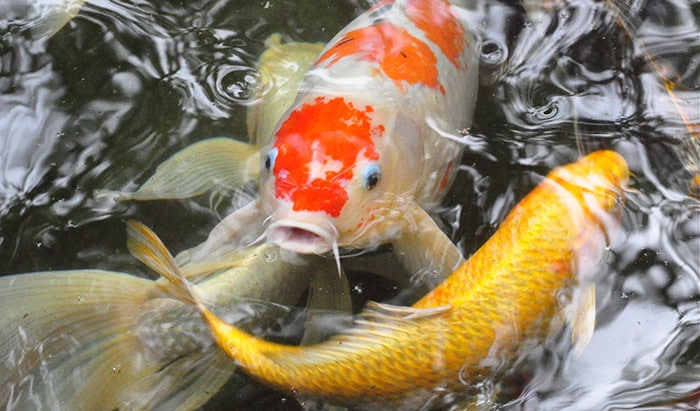If you have a fish tank, it’s important to keep an eye on your fish and ensure they are healthy. One sign that something may be wrong is if your fish starts gasping for air at the water’s surface.
In this blog post, we’ll discuss some of the most common reasons fish gasp for air and what you can do to help them. We’ll also cover how to tell when it’s time to take your fish to the vet.
So if you have similar concerns about your fish, keep reading!
Why Your Fish Gasping at the Water’s Surface?
1. Water Temperature is Too Low
Fish rely on the water temperature to regulate their body temperature. If the water is too cold, their bodies can’t function properly, and they may start gasping for air.
The ideal water temperature for most fish is between 75 and 80 degrees Fahrenheit. If your water temperature is lower than this, you may need to use a heater to raise it.
2. The Water Doesn’t Have Enough Oxygen
Another reason fish gasp for air is because the water doesn’t have enough oxygen. They get oxygen from the water through their gills.
The fish will start gasping for air if the water doesn’t have enough oxygen. This is often caused by overfeeding, as uneaten food can decompose and release toxins that deplete the oxygen in the water.
Too many fish can also cause breathing issues in a small tank. If your fish are gasping for air, check the water’s oxygen levels and ensure they are within the normal range.
3. pH Levels Affect How Well Fish Breathe
The pH of the water can also affect how well fish breathe. The ideal pH for most fish is between 6.5 and 7.5.
If the pH is too high or too low, it can interfere with the fish’s ability to absorb oxygen through their gills. If you notice your fish gasping for air, check the pH of the water and adjust it if necessary.
4. Ammonia
Ammonia is a toxic substance that can build up in fish tanks if not properly cleaned. Ammonia can cause fish to gasp for air and other symptoms such as lethargy, loss of appetite, and increased respiratory rate.
If you notice any of these symptoms in your fish, it’s important to test the water for ammonia and take steps to remove it.
5. Gasping For Air Because Disease
In some cases, fish gasp for air because they suffer from a disease.
Common signs of the disease include lethargy, loss of appetite, abnormal swimming, and increased respiratory rate. If you notice any of these signs, it’s important to take your fish to the vet as soon as possible.
6. Dissolved gaseous content
The number of dissolved gasses in the water can also affect how well fish breathe. If the number of dissolved gasses is too low, it can cause fish to gasp for air. This is often caused by over-filtering, as filters can remove dissolved gasses from the water.
It can also be caused by aerating the water too much. If you notice your fish gasping for air, check the dissolved gasses in the water and ensure they are within the normal range.
Tips To Ensure Your Fish are Getting Enough Oxygen

- Check the water temperature. If it’s too warm, the oxygen level in the water will decrease, and your fish will start gasping for air.
- Check the filtration system. A properly functioning filter is crucial for maintaining adequate oxygen levels in the water.
- Check the aeration system. If you have an air pump, make sure it’s working properly.
- Do a water change. A fresh supply of oxygenated water can help your fish recover from periods of low oxygen levels.
- Test the water. A simple test kit can tell you whether the oxygen levels in your tank are too low.
- Add an air stone. If your tank is poorly aerated, adding an airstone can help increase the oxygen levels.
- Avoid overfeeding your fish. Too much food can lead to water pollution and less dissolved oxygen.
- Regularly clean your tank and remove any debris. A clean tank is a healthy tank!
Conclusion
So, what do you do if your fish are gasping for air? If you notice your fish gasping for air, taking action immediately is essential.
If you have an aquarium, ensure that the filter is working properly and that there is enough oxygen in the water. You may also want to consider getting an aerator for your tank.
Following these tips can help keep your fish healthy and happy. Have you ever had problems with your fish gasping for air? What did you do to solve the problem?




